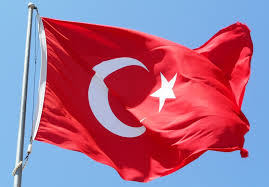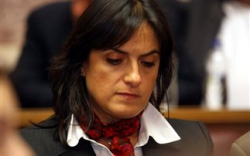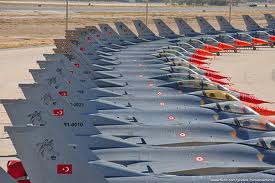By RIZA TÜRMEN, Hurriyet Daily news
In countries ruled by democracy, a broad agreement on the basic elements of democracy will make that country more peaceful and strong. In countries governed by oppression and fear, what is important is not forging a unity and consensus that will endorse the government’s policies but rather to create an effective opposition dissociated from those policies.
In countries where oppressive and authoritarian governments are in power, the slogans of “unity and solidarity” aim to secure a social consensus for the government’s policies while simultaneously “depoliticizing” society. In an attempt to create a consensus on government policies, the public is constantly told that it is surrounded by internal and external enemies and that the survival of the nation is under threat. In addition, the government tries to mold society in line with its own ideology.
Oppressive and authoritarian governments aim to establish control over society in two main ways: By creating an illusory world far from realities and by forcing society to accept a system of values that is incompatible with democracy.
To succeed in a fight for democracy, the opposite of this path must be taken. Opposition voices must speak the truth and present society with a new vision emphasizing a universal and democratic system of values, without getting caught up in a narrow, chauvinistic and exclusionist wave of nationalism imposed on society.
In today’s Turkey, politics should have only one aim: Making an effective democratic struggle against the oppressive rule of the government. Three developments in particular have increased the importance of this struggle:
1) The ongoing State of Emergency, which is on the verge of becoming a permanent system of governing, creating increased pressure on the opposition inside and outside parliament, and imposing ever more restrictions on fundamental rights and freedoms.
2) The April 2017 referendum on shifting to an executive presidential system showed that there is no longer election security in Turkey.
3) With the constitutional amendments passed in that referendum, Turkey is effectively being transformed into a “constitutional one-man regime.”
In our search for an effective democratic struggle against this hegemonic structure, our starting point should be based on two lessons drawn from recent developments in Turkey:
1) Politics in Turkey can no longer be confined to the Grand National Assembly. Parliament’s powers have already been largely transferred to the executive in state of emergency decrees. It will further lose its relevance with the new constitutional amendments entering into force. It is now imperative to move politics into public spheres outside parliament.
2) As the opposition’s “Justice March” showed in the summer, politics must now be done together with large masses of people including political parties, professional societies, trade unions, and non-governmental organizations in order to create an effective opposition.
If this struggle remains fragmented it will never be successful against the present system. What is important at this stage is to establish links between different opposition movements, while preserving their different identities.
For this, it is essential to build a horizontal network formed by equals, which does not have a center and hierarchy. Such a centerless, egalitarian network that is open to everyone who objects to the established system – without excluding any people or groups but accepting all of them together with their differences – and bringing all political parties and civil society organizations together, is a precondition for the success of Turkey’s struggle for democracy.
This is the main purpose of our new “Unity for Democracy Platform.”
Different public spaces are the knots of the network that will be established. Local organizations, public assemblies, public forums, neighborhood assemblies, justice and democracy walks, meetings, and networks of solidarity established on social media are all autonomous public spaces. Activities in these public spaces will have a major role in building a democratic society. The ultimate goal is to turn the people into “the agents of change.”
The rebuilding of democracy through the collective action of the people at the grassroots level requires the adoption of a new concept of active citizenship. In this understanding, it is important for individuals to consider themselves engines of change, to participate in activities in the public domain, and to be aware that citizenship is not limited to going to the ballot boxes. Such a new “identity of citizenship” will open a new space for people, in which they become major political players rather than passive spectators. This will create a new enthusiasm for a participatory and more pluralistic democracy. Such a struggle will form the foundations of a new, modern democracy in Turkey.
Turkey is on the verge of a new era. We should be aware of this and feel the excitement of this new era. Instead of complaining, we should think practically in terms of what we can do to build a new democracy.
It is an ethical obligation to be part of the struggle for democracy, justice and freedom in this country. The struggle against the existing hegemonic structure will in itself carry the seeds of a new, democratic Turkey.



















